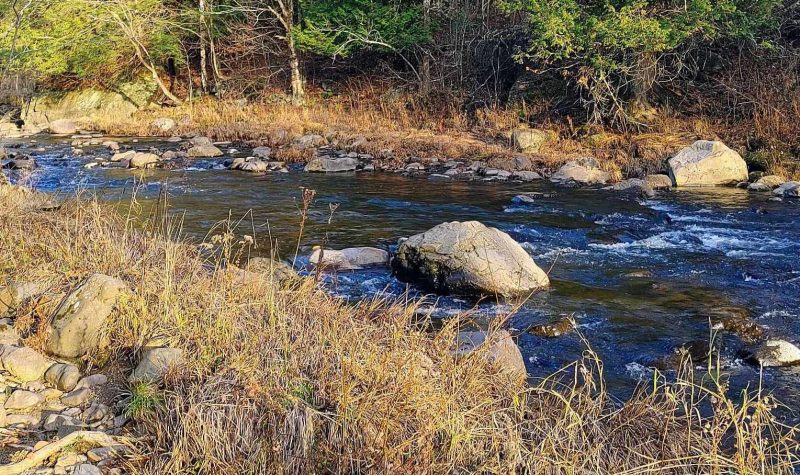As the need for mental health services continues to grow, Prescri-Nature wants healthcare professionals to reconsider the role of nature in creating a healthy society.
Prescri-Nature is the Quebec-based version of an initiative of the BC Parks Foundation known as PaRx, launched in 2019. The initiative is led by a group of health professionals that want to improve people’s mental health by “prescribing time in nature.” Prescri-Nature was founded in 2022 by six healthcare professionals after the BC Parks Foundation wanted to launch the initiative country-wide.
Emmett Phil Coriat, co-founder of Prescri-Nature and founder of the Natural Leadership Institute, said that there have been a number of studies over the years that have demonstrated the benefits of nature for people’s health. As people become more disconnected from their surrounding natural environments, Coriat emphasized that it’s time that health professionals integrate it as “the fourth pillar of public health,” especially during a time where people are seeking alternative resources to improve their mental health.
“It’s been demonstrated that people are twice as likely to [consider] a recommendation if it’s been prescribed by a doctor or a health care professional. The idea is that if it is integrated as the fourth pillar of public health, it will be adopted by people,” he explained. “(…) We are so in our heads and not into our senses that we don’t connect with what’s around us. Nature is a part of us. We, as humans, developed our brains for thousands of years inside nature, living in nature, surviving and thriving in nature. It’s only in the last 300 years with urbanization, modern society, and what we call progress, that we, as humans, have disconnected from nature.”
Coriat highlighted that the 1980s was a critical time period that demonstrated just how important it is for humans to have a relationship with the natural world. It began with Japan when the country was going through a mental health crisis due to rapid industrialization leading it to develop Shinrin-Yoku, (also known as "forest bathing) “which means immersing ones sense in nature.”
“It had an amazing effect on people. It became a real practice, so much so that it was integrated in the health care system in Japan. In addition, in the 1980s a biologist from Harvard called Edward Wilson coined something called the ‘Biophilia Hypothesis.’ It was an observational study that showed that people in cities had pretty bad mental health, they were having depression and anxiety,” Coriat highlighted. “By putting them in nature and spend time in nature, their mental health was restored and their ability to concentrate was restored. There was a conclusion that okay, nature is health for us, but nobody had any idea how it worked.”
Two decades later, a number of studies analyzed what nature contributes to public health. With no signs of urbanization slowing down any time soon, Coriat emphasized that the disconnection to nature is only “accelerating” and the time to re-connect is now.
“We discovered that our senses are positively adapted to reciprocate with nature. Basically, it is in our DNA to reciprocate and be in nature. (…) When we are in nature and we allow our sense to reciprocate with different elements, the effects are absolutely astounding,” he noted. “The Biophilia Hypothesis was proven and that was the beginning of all of the nature prescription programs saying ‘hey, now it’s no longer hocus pocus, it has been proven scientifically.”
In addition to being a co-founder of Prescri-Nature, Coriat is the found of the the Natural Leadership Institute, which builds on the mission of Prescri-Nature through a specific discipline known as forest therapy - a guided sensory experience in nature to maximize the emotional, physiological, and cognitive, health of the individual and society. Coriat noted that while he’s seen a change in attitude within the general public in terms of recognizing the benefits of nature, the shift towards integrating it in their daily lives begins with the health professionals.
“I’ve done some guiding for troubled kids, I’ve gone to co-op medical centres in the Eastern Townships. People are super excited, but then they don’t necessarily follow-up. (…) When they experience it, it changes them and they talk about it to bring other people, friends, and family. It’s really to get people out there in nature and get out of a clinic or something like that,” he said. “It’s happening, but I think part of it is the health care workers and for them to be convinced of it. The starting point is to convince and to have the healthcare workers, the nurses, the doctors, the pharmacists, actually experience it. The starting point is to have the prescribers taste what it is.”
Coriat said that he “highly encourages” Townshippers to reach out to local guides during a critical time for mental health.
“Prescri-Nature has a website with a resources page that has all the types of guided activities that go beyond just going in nature. So forest therapy, therapy by nature and adventure, an amazing wide range of activities that are nature based. I encourage people to go and see that database. These are all partners of Prescri-Nature,” he noted.
Listen to the full interview below:


